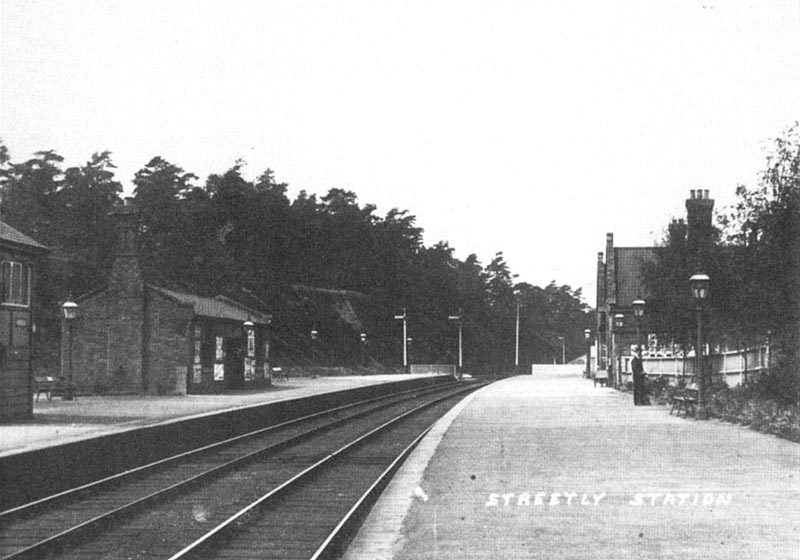 |
|
London North Western
Railway:

Midland
Railway:

Stratford
Midland Junction Railway
|

|
LMS Route: Water Orton to Walsall
Streetley Station: mrst1137
 |
Looking towards Aldridge with the up platform on left and
the main station building on the right. Passengers arriving by road would enter
through the building on the right which connected with Thornhill Road. Unlike
many other stations operated by the Midland Railway within the area, Streetly
was built with only First and Third Class passenger accommodation being
available. This was because on the 1st January 1875, after adding third class
accommodation to every train in 1872, the Midland Railway abolished second
class travel completely, whilst at the same time reducing the price of Third
Class travel. Furthermore, they downgraded the quality of the second class
carriages by removing the leather backs of the seats, while also improving the
quality of the third class accommodation by covering the seats with the same
material and padding. In addition, the company introduced carriages, starting
with its new Settle to Carlisle route, which were twice as long as contemporary
designs, had improved ride comfort because of swivelling bogies and which
combined first and third class compartments.
The Midland undertook this pioneering action because of the
forces acting on its business. Whereas in 1859 just over thirty-two per cent of
all railway passengers in the British Isles were travelling by second class, by
1874 the proportion had fallen dramatically to a fraction over fifteen per
cent. Furthermore, over the same period, the proportion of individuals
travelling by third class rose from just under fifty per cent to more than
three-quarters of all passengers. Indeed in the Midland Railway’s case,
the proportion of passengers travelling second class dropped from twenty-three
per cent to eleven per cent which substantially lowered the profitability of
carrying them. Therefore, by eliminating second class accommodation the Midland
Railway reduced the associated costs of carriage construction and marshalling.
Furthermore, the improved third class accommodation would entice customers who
would normally travel third class from competing railways. Indeed, to try and
capture more of the quickly growing third class market was a shrewd business
move.
 back back

|
